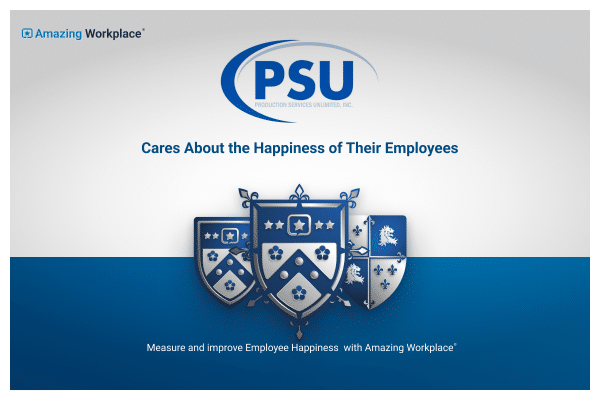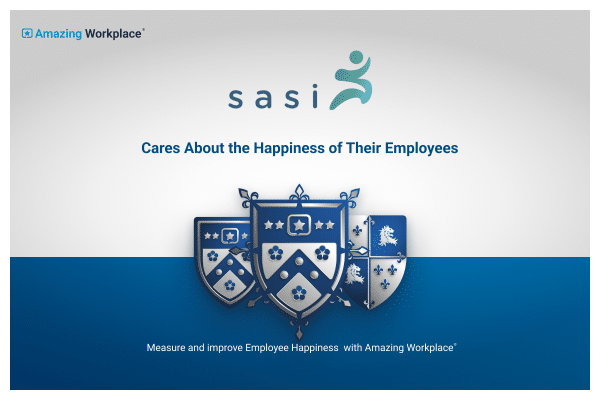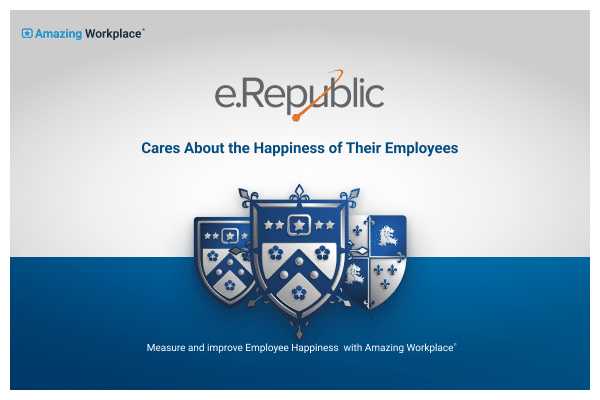Corporate Culture and Productivity
A positive workplace environment can result in higher productivity, better engagement, and employee retention.

The results are in — an increasing number of studies on positive organizational psychology show pretty indisputably that a dog-eat-dog, only-look-out-for-yourself environment is not only harmful to productivity, but that a positive, predictable work environment will lead to exponential benefits for employees, the company, and the bottom line.
Conventional wisdom used to be that a high-pressure environment was the way to push employees to become diamonds of productivity — to be better, push harder, work faster, and rise to the wolf-of-Wallstreet, cut-throat mentality.
Corporate culture is the blend of values, vision, mission, goals, and the everyday standards of communication, and interaction that create the organizational atmosphere that surrounds and permeates every aspect of a work environment. It’s not just modern, comfortable design and furnishings, stocked kitchens, happy hours, or youthful exuberance that creates a corporate culture — it’s so much more.
For example, take a look at the disaster that was WeWork. On the surface, it looked like a millennial community of like-minded individuals who wanted to hustle harder and do what they loved. Offices were decorated with modern vibrance and halls were filled with fun, enthusiastic energy. But the company was rotten to the core, and it fell from grace most spectacularly and publicly.
The company didn’t crumble like the Ottoman Empire solely because of its culture, there were financial transgressions and executive wrongdoings a-plenty as well. But one cannot extricate those administrative flaws from the culture as a whole. According to the documentaries and the many articles that cover the debacle, some employees were fired simply because of a “bad energy” or wearing the wrong choice of shoes, or some other similarly ludicrous offense.
At face value, it looked like all was well and that employees were treated decently and like “partners” but the truth was sadly far from that ideal. When the owners walked away with a giant financial parachute, employees were essentially left to fend for themselves, having invested their own savings in stock options (that were almost worthless), and not so much as a “thank you” or “we’re sorry”. Instead law suits were fought and the company finally went public with a valuation that was a fraction of its peak.
All this to say that “hustle harder” may not be the battle cry of a company that has your best interests at heart. Sweat equity and having a strong work ethic is one thing — but to the detriment of your personal life, personal dreams, and financial future — the answer should most emphatically be, “No thank you.”
The cost of disengagement alone should be enough of a deterrent to businesses. A culture of fear and high-pressure lording over employees in a messianic ego trip will only ever result in employee resentment and disengagement. Employee turnover is costly, as is the lost productivity of employees who are no longer engaged in their work.
Research suggests that the inevitable stress an environment like that creates will likely lead to disengagement over the long term. Engagement in work comes along with feeling valued, secure, supported, and respected. A high-stress environment doesn’t exactly scream the aforementioned feelings.
Studies by the Queens School of Business and the Gallup Organization show that disengaged workers had 37 percent higher absenteeism, 49 percent more accidents, and 60 percent more errors and defects. In organizations with low employee engagement scores, they experienced 18 percent lower productivity, 16 percent lower profitability, 37 percent lower job growth, and 65 percent lower share price over time. And most telling — businesses with highly engaged employees enjoyed 100 percent more job applications.
A great place to work doesn’t make you feel like a cog in a wheel or an object to whip into productivity. Being treated with kindness and decency and respect and value are the benchmarks of a workplace that knows your value and wants to keep you around because you are a team member who contributes to the overall vision and goals of the group.
A sense of loyalty is built by mutual respect and trust. Lack of loyalty is a major cost of disengaged employees which results from toxic workplace culture. Research shows that workplace stress leads to an increase of almost 50 percent in voluntary turnover. People look for other employment, decline promotions, or quit. And the turnover costs associated with recruiting, training, lowered productivity, lost expertise, and so forth, are significant. The Center for American Progress estimates that replacing a single employee costs roughly 20 percent of that employee’s wages.
Here’s the million-dollar question for you. Would you rather work in a place that treats you like a horse to be cracked with a whip to the finish line? Or… a place that cares for, is interested in, and maintains responsibility for not only you but your colleagues as friends? Would you prefer to work at a company that provides support for one another, offers kindness and compassion when others are struggling, avoids blame and forgives mistakes, inspires and empowers, emphasizes the meaningfulness of the work, and treats one another with respect, gratitude, trust, and integrity?
Pretty easy when it’s put that way, right? Now, how about how much more you’d be willing to work in that kind of environment? It’s not that far a stretch to imagine that you’d be willing to go the extra mile and contribute more than is expected to a group that makes you feel that way. And therein lies the connection between corporate culture and productivity.


